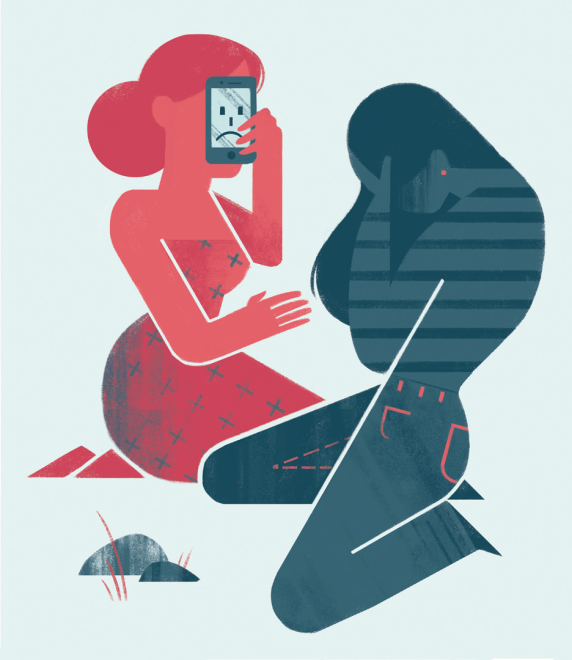The Modern Loss of Empathy
As I log onto Facebook I immediately notice the trending box on the right-hand side of the screen. I see, in blue letters, the name of a place. This is no ordinary place, but rather the site of a recent mass tragedy. Quickly scrolling down through my news feed I see that many people are sharing articles, trying to disseminate any relevant information. More common than those links, however, are the ubiquitous “thoughts and prayers.” Everyone seems to be rushing to type these words.
Everyday around the world, hundreds of people die from senseless violence, inadequate healthcare, starvation, and disease, yet these incidents are not trending on my news feed. No one is sending “thoughts and prayers” to them, and no one is debating how to prevent these deaths, because we feel they cannot happen to us. Only when violence creeps into the places where we can picture ourselves do we feel the need to send our token “thoughts and prayers.” This manifests itself most prominently during terrorist attacks on western civilization, places where we could very well be traveling, and mass shootings, where we very well could be standing before a bullet pierces through our body. It is only when we could have been in the same inopportune place as the victim that our online empathy is activated.
Furthermore, when we empathize, we rush to social media and post our “thoughts and prayers” to the fam
ilies of the victims. Yet, I can’t help but wonder as I see these messages of “thoughts and prayers” on my news feed: do we really mean it? Have we set aside a single moment to just grieve? Shed a single tear? Pondered what it is like for a life to cease being? Can we feel the penetrating pain of loss, and manage to express it like that? It seems unfathomable to me that we can express our deepest feelings with a standard “thoughts and prayers .” Why do most of us conform to that standard message, when we each feel differently? Surely we can do better in articulating our feelings.
.” Why do most of us conform to that standard message, when we each feel differently? Surely we can do better in articulating our feelings.
Perhaps even more troubling is why we send our “thoughts and prayers,” but do not take substantive action. If we feel passionate enough about what happened, we should make a significant effort to prevent it from happening again. After a natural disaster there are many charities doing relief work that need donations. After gun violence, we can pressure lawmakers to craft safer gun laws. Predictably, after mass shootings, there are fervent calls to action, yet all too often this effort is not sustained. Sadly, what usually happens is a rush of people buying more guns. Their fear of having guns taken away overrides their empathy for the victims. After the Newtown school shooting, the political will was almost there, but a bill introduced to merely add some very basic (and, according to polls, very popular) gun safety laws again fell short. Time and again we let our fear of change override our empathy, and permit the status quo to remain.
Why isn’t our empathy stronger? There are many possible answers. If we scroll through any screen nowadays, whether on our phones looking at social media, or on a television watching the news, we are bound to see violence. Violence simply sells. We have become inured to the violence occurring today: it is simply background noise. We don’t even know the names of the victims, let alone their backgrounds and life stories. All of this makes it harder for us to empathize.
It’s not just in the news. It seems violence may be ingrained in American culture. Violence is glorified in our most popular movies. In sports we often cheer loudest when a big hit happens, even though it may have devastating repercussions. Guns are increasingly seen as toys and shooting has become more of a sport. The fact that these are deadly weapons with the power to destroy a body in mere seconds has become obscured.
I’m not calling for our news organizations to stop covering violence, our movies to cut out violence, or our sports to be non-contact. I’m merely asking that we reexamine the way we look at violence. Each human life is precious, and when one is lost, we should at least be honest about how we feel. While it may be harder for us to truly empathize with the victims when we are exposed to so much violence, we must be vigilant. The next time we are witness to a tragedy, let’s take a moment to step back and really think about what just happened.